UPS places largest Semi order: The largest operator of commercial trucking fleets in the world has taken the largest order so far of the Tesla Semi electric trucks. UPS has  played an order for 125 of Tesla’s new all-electric Semi tractors. It falls into the company’s extensive clean transportation fleet that includes vehicles powered by electricity, natural gas, and propane. Tesla Semis are poised to usher in a new era in improved safety, reduced environmental impact, and reduced cost of ownership, UPS said in a statement. Last week, PepsiCo Inc. had placed the largest Semi order with Tesla at 100 units in its efforts to reduce fuel costs and fleet emissions.
played an order for 125 of Tesla’s new all-electric Semi tractors. It falls into the company’s extensive clean transportation fleet that includes vehicles powered by electricity, natural gas, and propane. Tesla Semis are poised to usher in a new era in improved safety, reduced environmental impact, and reduced cost of ownership, UPS said in a statement. Last week, PepsiCo Inc. had placed the largest Semi order with Tesla at 100 units in its efforts to reduce fuel costs and fleet emissions.
Cap-and-trade auction strong: The California Air Resources Board reported strong transfer activity in its most recent cap-and-trade auction results for November. Since the program’s inception, the total amount of auction proceeds that have been placed into the California Greenhouse Gas Reduction Fund comes out to about $6.4 billion. California’s cap-and-trade program began auction sales in late 2012 as an offshoot of the state’s AB 32 global warming act. Under the state’s regulatory structure, large polluters buy carbon credits that come from businesses generating surplus allowances. Collected funds from the auctions fund emission-reducing endeavors, including sustainable energy projects and rebates for electric vehicles and solar panels.
Branson becomes chairman: Virgin Hyperloop One has raised an additional $50 million ahead of its Series C round of funding. Richard Branson, founder of the Virgin 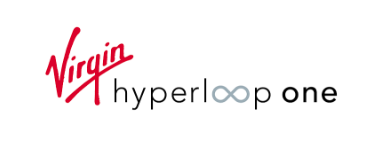 Group, will become chairman of the high-speed transportation company. Branson joined the board of directors in October after Virgin Group invested in the company. The company has also completed its third phase of testing achieving historic test speeds of 387 kilometers per hour (240.4 miles per hour). Branson is internationally known for achievements in air, rail, and space transportation, and his commitment to sustainability.
Group, will become chairman of the high-speed transportation company. Branson joined the board of directors in October after Virgin Group invested in the company. The company has also completed its third phase of testing achieving historic test speeds of 387 kilometers per hour (240.4 miles per hour). Branson is internationally known for achievements in air, rail, and space transportation, and his commitment to sustainability.

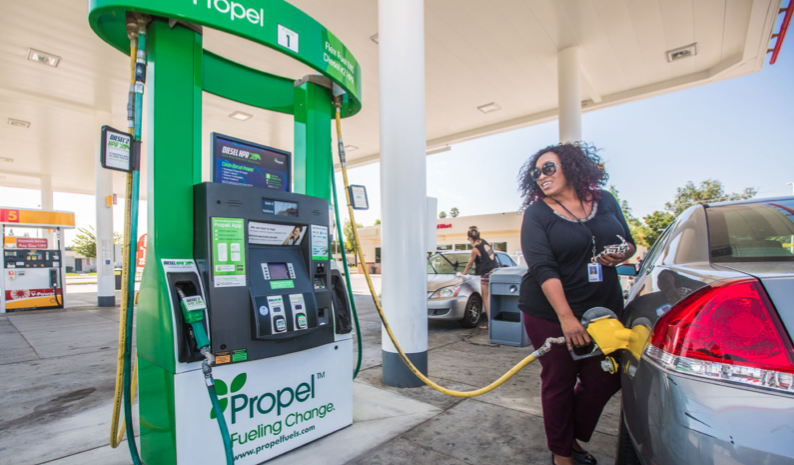 the impact of California’s Low Carbon Fuel Standard on alternative fuel consumption and the effect on emissions in the state. While targets are being met for 2020 goals, the study indicates that the current policy model will need to change to hit 2030 targets that will more than double the volume of expected low carbon fuels to five billion gallons. Propel Fuels and study partner ICF see that possible through flex fuel, high-efficiency diesel vehicles, electric vehicles, and hydrogen fuel cell vehicles. Through its network of fueling statins, Propel Fuels offers E85 made from corn and next generation sources such as switchgrass and agricultural waste material. Its stations also offer high-performance renewable diesel.
the impact of California’s Low Carbon Fuel Standard on alternative fuel consumption and the effect on emissions in the state. While targets are being met for 2020 goals, the study indicates that the current policy model will need to change to hit 2030 targets that will more than double the volume of expected low carbon fuels to five billion gallons. Propel Fuels and study partner ICF see that possible through flex fuel, high-efficiency diesel vehicles, electric vehicles, and hydrogen fuel cell vehicles. Through its network of fueling statins, Propel Fuels offers E85 made from corn and next generation sources such as switchgrass and agricultural waste material. Its stations also offer high-performance renewable diesel.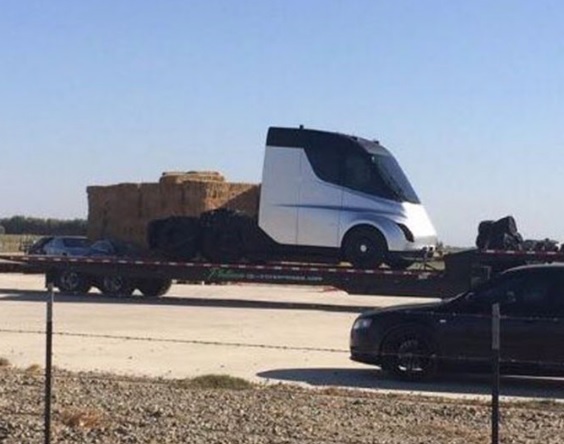 diverting resources to help bring Puerto Rico back through battery production to help the island recover from hurricane devastation. Residents have been going without electricity. Tesla was below its production target to build more than 1,500 Model 3 units in the third quarter. The company had just delivered around 220 Model 3 sedans and produced 260 during the quarter. Earlier this week Tesla reported that “production bottlenecks” had left it behind the planned ramp-up for the Model 3.
diverting resources to help bring Puerto Rico back through battery production to help the island recover from hurricane devastation. Residents have been going without electricity. Tesla was below its production target to build more than 1,500 Model 3 units in the third quarter. The company had just delivered around 220 Model 3 sedans and produced 260 during the quarter. Earlier this week Tesla reported that “production bottlenecks” had left it behind the planned ramp-up for the Model 3.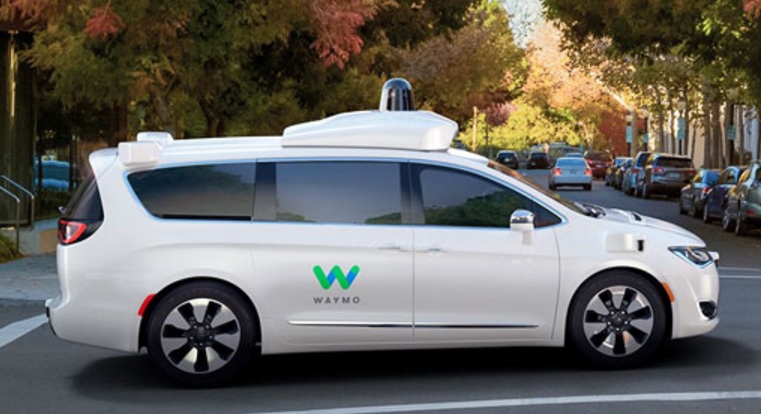 is teaming up with Mothers Against Drunk Driving, the National Safety Council, and the Federation for Blind Children in a campaign called “Let’s Talk Self-Driving.” Waymo also emphasizes that autonomous vehicles can eliminate most alcohol-related fatal crashes, and would offer the blind a transportation option. The company said the public awareness ad campaign will begin in Arizona on Monday. That’s where Waymo has been doing a lot of its self-driving car testing. The ad campaign will be delivered through digital ads, outdoor billboards, fuel pump advertising, and radio spots.
is teaming up with Mothers Against Drunk Driving, the National Safety Council, and the Federation for Blind Children in a campaign called “Let’s Talk Self-Driving.” Waymo also emphasizes that autonomous vehicles can eliminate most alcohol-related fatal crashes, and would offer the blind a transportation option. The company said the public awareness ad campaign will begin in Arizona on Monday. That’s where Waymo has been doing a lot of its self-driving car testing. The ad campaign will be delivered through digital ads, outdoor billboards, fuel pump advertising, and radio spots.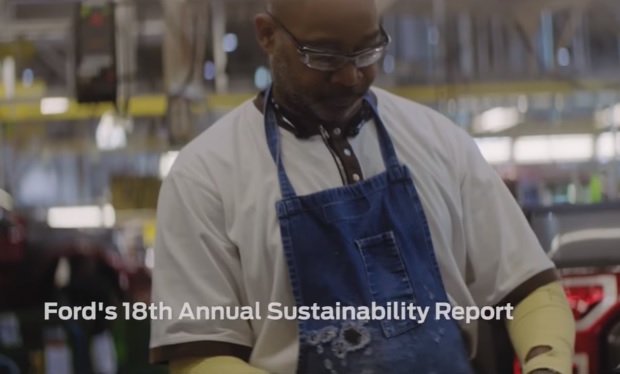 drinkable water in manufacturing. Since 2000, Ford has cut water use by more than 61 percent. It’s partnership with Jose Cuervo continued using agave plants for sustainable bioplastics being placed in Ford vehicles. Now about 300 vehicle parts come from renewable sources such as soybeans, cotton, wood, flax, jute, and natural rubber. Its aluminum closed-loop recycling system recycles about 20 million pounds of military-grade aluminum alloy per month, enough to build more than 37,000 F-Series truck bodies a month. Ford continues to reduce the footprint of its supply chain with an enhanced Partnership for a Cleaner Environment program that has grown to more than 40 suppliers in 40 countries – up from 25 suppliers in 2015. The automakers zero-waste-to-landfill program has been expanded to a total of 82 Ford facilities around the world, where no waste is sent to landfills. You can read the company’s 18th annual sustainability report to learn more, plus read and watch a video on improving safety and fuel economy, reducing manufacturing carbon dioxide, the company global electrification strategy, and sustainable mobility services.
drinkable water in manufacturing. Since 2000, Ford has cut water use by more than 61 percent. It’s partnership with Jose Cuervo continued using agave plants for sustainable bioplastics being placed in Ford vehicles. Now about 300 vehicle parts come from renewable sources such as soybeans, cotton, wood, flax, jute, and natural rubber. Its aluminum closed-loop recycling system recycles about 20 million pounds of military-grade aluminum alloy per month, enough to build more than 37,000 F-Series truck bodies a month. Ford continues to reduce the footprint of its supply chain with an enhanced Partnership for a Cleaner Environment program that has grown to more than 40 suppliers in 40 countries – up from 25 suppliers in 2015. The automakers zero-waste-to-landfill program has been expanded to a total of 82 Ford facilities around the world, where no waste is sent to landfills. You can read the company’s 18th annual sustainability report to learn more, plus read and watch a video on improving safety and fuel economy, reducing manufacturing carbon dioxide, the company global electrification strategy, and sustainable mobility services.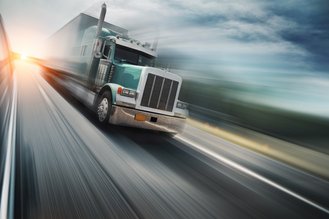 said he met with Tesla earlier this year to discuss what the Tesla Semi truck will be like that CEO Elon Musk announced last year and said would be revealed in September. It will be ideal for short-haul trucking and won’t have anything like the capacity of 1000-miles per fueling big rigs typically seen on U.S. highways. The Tesla Semi could work for companies needing freight hauling from ports to warehouses and other day trips. Tesla will face a series of challenges including ramping up later this year for the Tesla Model 3.
said he met with Tesla earlier this year to discuss what the Tesla Semi truck will be like that CEO Elon Musk announced last year and said would be revealed in September. It will be ideal for short-haul trucking and won’t have anything like the capacity of 1000-miles per fueling big rigs typically seen on U.S. highways. The Tesla Semi could work for companies needing freight hauling from ports to warehouses and other day trips. Tesla will face a series of challenges including ramping up later this year for the Tesla Model 3.